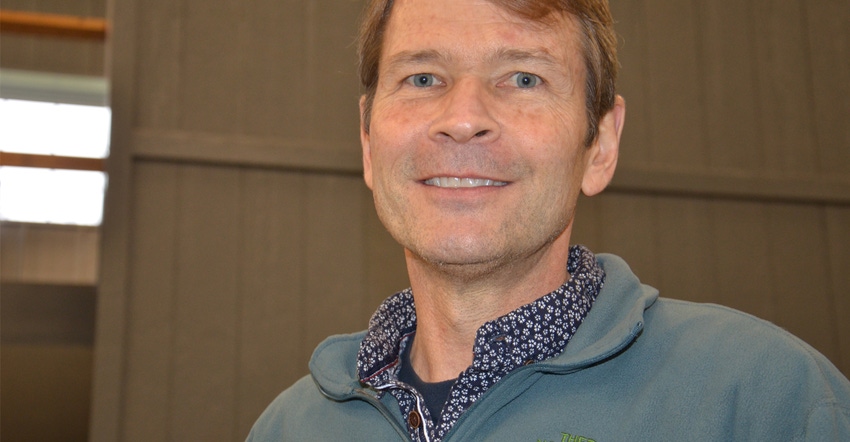February 2, 2017

A dozen young Chinese scientists recently visited an Indiana farm. They gathered in Mike Starkey’s toolshed near Brownsburg to learn about no-till, cover crops and conservation farming. But they were most interested in learning about something that might be more important than anything else. They wanted to know how to build relationships among partners to make progress in improving and protecting the environment.
“They’re very interested in developing the types of relationships that help us carry out environmental studies,” said Gabriel Filippelli, a member of the Earth Sciences Department at Indiana University-Purdue University Indianapolis. He accompanied the visiting scientists and helped facilitate discussion.
“This is their only visit to a real farm while they're here,” he explained. “It was an obvious choice because our staff has worked with Mike for years, and Mike works with many other groups besides us.”
Starkey began no-tilling a couple of decades ago and eventually added cover crops. Bob Barr, another professor at IUPUI, first met Starkey more than 10 years ago. He and the IUPUI Earth Sciences team were studying how the watershed feeding into Eagle Creek Reservoir impacted water quality. The reservoir is a major source of drinking water for Indianapolis.
“I was walking the stream and noticed there was something different about what was happening on Mike’s fields and what was happening in other fields,” Barr told the visitors. “We met and I started asking questions. Our relationship grew from there.”
Nurture relationships
“I was interested in talking to them [IUPUI personnel] because we’re not making new soil, and we have to take care of what we have,” Starkey explained. “If they could help me learn more about how what I was doing was impacting the environment, I was all for it.”
Barr told the Chinese scientists, “It can be challenging for people like us to work with private citizens. The key is keeping everyone’s role in perspective.
“We must remember that we are Mike’s guests,” he said. “We’re coming into his home, his farm and the place where he makes his livelihood. It takes time to develop relationships like this. They’re based on trust.”
Starkey added, “You must have a passion for what you’re doing. My passion is making this system work, and I’ve enjoyed learning from Bob and others who have come out here through the years.”
Deal breaker
Barr told the Chinese guests that since Starkey worked with state, local and federal conservation agencies, and their representatives were often at his farm, it allowed him and other IUPUI personnel to learn from them, too. In every case, working together was a process developed over time, and based on relationships and trust.
Not recognizing the farmer’s role and ownership in the process would soon become a deal breaker, Barr said. Taking that approach would not have allowed them to build a relationship that continues to benefit each other more than 10 years later.
“We don’t tell Mike how to grow crops,” Barr said bluntly. “That’s his expertise, not ours. We are here because he allows us to be here.
“At the same time, Mike doesn’t try to tell us how some of nature’s complex reactions work, such as what happens to nitrogen in the soil. That’s what we bring to the table, and he respects and benefits from that as well.”
You May Also Like




